Elisabeth of Wied
| Elisabeth of Wied | |
|---|---|
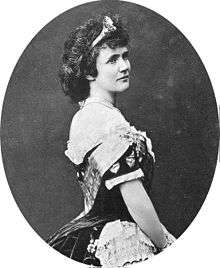 | |
| Queen consort of Romania | |
| Coronation | 10 May 1881 |
| Born |
29 December 1843 Schloss Monrepos (Neuwied) |
| Died |
2 March 1916 (aged 72) Curtea de Argeş or Bucharest |
| Burial | The Cathedral of the Curtea de Argeş Monastery |
| Spouse | Carol I of Romania |
| Issue | Princess Maria |
| House |
House of Wied-Neuwied House of Hohenzollern-Sigmaringen |
| Father | Hermann, Prince of Wied |
| Mother | Princess Marie of Nassau |
| Signature |
|
Pauline Elisabeth Ottilie Luise zu Wied (29 December 1843 – 2 March 1916) was the Queen consort of Romania as the wife of King Carol I of Romania, widely known by her literary name of Carmen Sylva. Elisabeth was the aunt of William of Albania (sister to William, 5th Prince of Wied, father of William of Albania).
Family and early life
Born at "Schloss Monrepos" in Neuwied, she was the daughter of Hermann, Prince of Wied, and his wife Princess Marie of Nassau, daughter of William, Duke of Nassau (and sister of Adolphe, Grand Duke of Luxembourg). Elisabeth had artistic leanings; her childhood featured seances and visits to the local lunatic asylum.[1]
Marriage
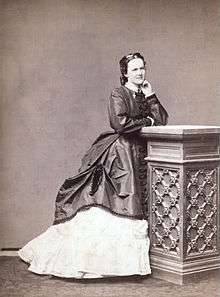
As a young girl, sixteen-year-old Elisabeth was considered as a possible bride for Albert Edward, Prince of Wales (the future Edward VII of the United Kingdom, known as Bertie). His mother, Queen Victoria, strongly favored her as a prospective daughter-in-law, and urged her daughter Princess Vicky to look further into her.[1] Elisabeth was spending the social season at the Berlin court, where her family hoped she would be tamed into a docile, marriageable princess. Vicky responded, "I do not think her at all distinguée looking - certainly the opposite to Bertie's usual taste", whereas the tall and slender Alexandra of Denmark was "just the style Bertie admires".[1] Bertie was also shown photographs of Elisabeth, but professed himself unmoved and declined to give them a second glance.[2] In the end, Alexandra was selected for Bertie.
She first met Prince Karl of Hohenzollern-Sigmaringen in Berlin in 1861. In 1869, Karl, who was now Prince Carol of Romania, traveled to Germany in search of a suitable consort. He was reunited with Elisabeth, and the two were married on 15 November 1869 in Neuwied. Their only child, a daughter, Maria, died in 1874 at age three — an event from which Elisabeth never recovered. She was crowned Queen of Romania in 1881 after Romania was proclaimed a kingdom.
In the Russo-Turkish War of 1877–1878 she devoted herself to the care of the wounded, and founded the Order of Elizabeth (a gold cross on a blue ribbon) to reward distinguished service in such work. She fostered the higher education of women in Romania, and established societies for various charitable objects. She was the 835th Dame of the Royal Order of Queen Maria Luisa. She died at Curtea de Argeş or Bucharest.
Literary activity
As "Carmen Sylva", she wrote with facility in German, Romanian, French and English. A few of her voluminous writings, which include poems, plays, novels, short stories, essays, collections of aphorisms, etc., may be singled out for special mention:
- Her earliest publications were "Sappho" and "Hammerstein", two poems which appeared at Leipzig in 1880.
- In 1888 she received the Prix Botta, a prize awarded triennially by the Académie française, for her volume of prose aphorisms Les Pensees d'une reine (Paris, 1882), a German version of which is entitled Vom Amboss (Bonn, 1890).
- Cuvinte Sufletesci, religious meditations in Romanian (Bucharest, 1888), was also translated into German (Bonn, 1890), under the name of Seelen-Gespräche.
Several of the works of "Carmen Sylva" were written in collaboration with Mite Kremnitz, one of her maids of honor; these were published between 1881 and 1888, in some cases under the pseudonyms Dito et Idem. These include:
- Aus zwei Welten (Leipzig, 1884), a novel
- Anna Boleyn (Bonn, 1886), a tragedy
- In der Irre (Bonn, 1888), a collection of short stories
- Edleen Vaughan, or Paths of Peril (London, 1894), a novel
- Sweet Hours (London, 1904), poems, written in English.
Among the translations made by "Carmen Sylva" include:
- German versions of Pierre Loti's romance Pecheur d'Islande
- German versions of Paul de St Victor's dramatic criticisms Les Deux Masques (Paris, 1881–1884)
- and especially The Bard of the Dimbovitza, an English translation of Elena Văcărescu's collection of Romanian folk-songs, etc., entitled Lieder aus dem Dimbovitzathal (Bonn, 1889), translated by "Carmen Sylva" and Alma Strettell.
The Bard of the Dimbovitza was first published in 1891, and was soon reissued and expanded. Translations from the original works of "Carmen Sylva" have appeared in all the principal languages of Europe and in Armenian.
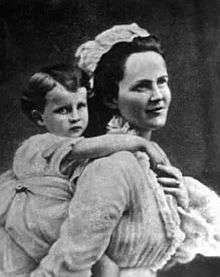
Văcărescu Affair
In 1881, due to the lack of heirs to the Romanian throne, King Carol I adopted his nephew, Ferdinand. Ferdinand, a complete stranger in his new home, started to get close to one of Elisabeth's ladies in waiting Elena Văcărescu. Elisabeth, very close to Elena herself, encouraged the romance, although she was perfectly aware of the fact that a marriage between the two was forbidden by the Romanian constitution. (According to the 1866 Constitution of Romania, the heir to the throne was not allowed to marry a Romanian.)
The result of this was the exile of both Elisabeth (in Neuwied) and Elena (in Paris), as well as a trip by Ferdinand through Europe in search of a suitable bride, whom he eventually found in Queen Victoria's granddaughter, Princess Marie of Edinburgh. The affair helped reinforce Elisabeth's image as a dreamer and eccentric.
Quite unusually for a queen, Elisabeth of Wied was personally of the opinion that a Republican form of government was preferable to Monarchy - an opinion which she expressed forthrightly in her diary, though she did not make it public at the time:
I must sympathize with the Social Democrats, especially in view of the inaction and corruption of the nobles. These "little people", after all, want only what nature confers: equality. The Republican form of government is the only rational one. I can never understand the foolish people, the fact that they continue to tolerate us.[3]
Titles, styles and honours
| Styles of Queen Elisabeth of Romania | |
|---|---|
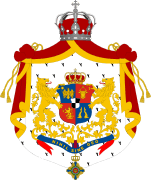 | |
| Reference style | Her Majesty |
| Spoken style | Your Majesty |
- Titles
- 29 December 1843 – 15 November 1869: Her Serene Highness Princess Elisabeth of Wied.
- 15 November 1869 – 15 March 1881: Her Royal Highness The Princess of Romania.
- 15 March 1881 – 10 October 1914: Her Majesty The Queen of Romania.
- 10 October 1914 – 2 March 1916: Her Majesty The Queen Dowager of Romania.
- National honours
_b_749.jpg)
-
 Romania: Knight Grand Cross of the Order of the Star of Romania[4]
Romania: Knight Grand Cross of the Order of the Star of Romania[4] -
 Romania: Knight Grand Cross of the Order of the Crown of Romania
Romania: Knight Grand Cross of the Order of the Crown of Romania -
 Romania: Recipient of the Ruby Jubilee Medal of King Carol I
Romania: Recipient of the Ruby Jubilee Medal of King Carol I
- Foreign honours
-
.svg.png) Austria-Hungary: Dame of the Order of the Starry Cross
Austria-Hungary: Dame of the Order of the Starry Cross -
.svg.png) Portugal: Dame Grand Cross of the Order of Saint Isabel[5]
Portugal: Dame Grand Cross of the Order of Saint Isabel[5] - German Empire
-
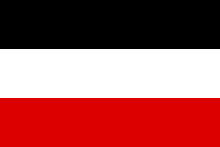 Germany/
Germany/.svg.png) Prussia: Dame of the Order of Louise
Prussia: Dame of the Order of Louise -
 Hohenzollern: Dame of the House Order of Hohenzollern
Hohenzollern: Dame of the House Order of Hohenzollern
-
-
 Russia: Dame Grand Cordon of the Order of Saint Catherine[6][7]
Russia: Dame Grand Cordon of the Order of Saint Catherine[6][7] -
 Spain: 835th Dame Grand Cross of the Order of Queen Maria Luisa[8]
Spain: 835th Dame Grand Cross of the Order of Queen Maria Luisa[8] -
 United Kingdom: Dame of the Royal Order of Victoria and Albert, 1st class (VA)
United Kingdom: Dame of the Royal Order of Victoria and Albert, 1st class (VA) -
.svg.png) Serbia: Dame Grand Cross of the Order of Saint Sava
Serbia: Dame Grand Cross of the Order of Saint Sava
Legacy
- Sierra Carmen Silva (Chile)
- Río Carmen Silva (Argentina, also known as Río Chico)
- The Forest path of Carmen Sylva (Šetalište Carmen Sylve) in Opatija, Croatia
Ancestry
| Ancestors of Elisabeth of Wied | ||||||||||||||||||||||||||||||||||||||||||||||||||||||||||||||||||||||||||||||||||||||||||||||||||||||||||||||||||||||||||||||||||||||||||||||||||||||||||||||||||||||||||||||||||||||||||||||||||||||||||||||||||||||||||||||||||||||||||||||||||||||||||||||||||||||||||||||||||||||||||||||||||||||||||||||||||||||||||||||||||||||||||||||||||||||||||||||||||||||||||||||||||||||||||||||||||||||||||||||||||||||||||||||||||||||||||||||||||||||||||||||||||||||||||||||||||||||||||||||||||||||||||||||||||||||||||||||||||
|---|---|---|---|---|---|---|---|---|---|---|---|---|---|---|---|---|---|---|---|---|---|---|---|---|---|---|---|---|---|---|---|---|---|---|---|---|---|---|---|---|---|---|---|---|---|---|---|---|---|---|---|---|---|---|---|---|---|---|---|---|---|---|---|---|---|---|---|---|---|---|---|---|---|---|---|---|---|---|---|---|---|---|---|---|---|---|---|---|---|---|---|---|---|---|---|---|---|---|---|---|---|---|---|---|---|---|---|---|---|---|---|---|---|---|---|---|---|---|---|---|---|---|---|---|---|---|---|---|---|---|---|---|---|---|---|---|---|---|---|---|---|---|---|---|---|---|---|---|---|---|---|---|---|---|---|---|---|---|---|---|---|---|---|---|---|---|---|---|---|---|---|---|---|---|---|---|---|---|---|---|---|---|---|---|---|---|---|---|---|---|---|---|---|---|---|---|---|---|---|---|---|---|---|---|---|---|---|---|---|---|---|---|---|---|---|---|---|---|---|---|---|---|---|---|---|---|---|---|---|---|---|---|---|---|---|---|---|---|---|---|---|---|---|---|---|---|---|---|---|---|---|---|---|---|---|---|---|---|---|---|---|---|---|---|---|---|---|---|---|---|---|---|---|---|---|---|---|---|---|---|---|---|---|---|---|---|---|---|---|---|---|---|---|---|---|---|---|---|---|---|---|---|---|---|---|---|---|---|---|---|---|---|---|---|---|---|---|---|---|---|---|---|---|---|---|---|---|---|---|---|---|---|---|---|---|---|---|---|---|---|---|---|---|---|---|---|---|---|---|---|---|---|---|---|---|---|---|---|---|---|---|---|---|---|---|---|---|---|---|---|---|---|---|---|---|---|---|---|---|---|---|---|---|---|---|---|---|---|---|---|---|---|---|---|---|---|---|---|---|---|---|---|---|---|---|---|---|---|---|---|---|---|---|---|---|---|---|---|---|---|---|---|---|---|---|---|---|---|---|---|---|---|---|---|---|---|---|---|---|---|---|---|---|---|---|---|---|---|---|---|---|---|---|---|---|---|---|---|---|---|---|---|---|---|---|---|---|---|---|---|---|---|---|---|---|---|---|---|---|---|---|---|---|---|---|---|---|---|---|---|---|---|---|---|---|---|---|---|---|---|---|---|---|---|---|---|---|---|---|---|---|---|---|---|
| ||||||||||||||||||||||||||||||||||||||||||||||||||||||||||||||||||||||||||||||||||||||||||||||||||||||||||||||||||||||||||||||||||||||||||||||||||||||||||||||||||||||||||||||||||||||||||||||||||||||||||||||||||||||||||||||||||||||||||||||||||||||||||||||||||||||||||||||||||||||||||||||||||||||||||||||||||||||||||||||||||||||||||||||||||||||||||||||||||||||||||||||||||||||||||||||||||||||||||||||||||||||||||||||||||||||||||||||||||||||||||||||||||||||||||||||||||||||||||||||||||||||||||||||||||||||||||||||||||
References
- 1 2 3 Pakula, p. 144.
- ↑ Hibbert, pp. 40-41.
- ↑ Eugen Wolbe, Carmen Sylva, Leipzig, 1933, p. 137, here quoted from Brigitte Hamann, Elisabeth: Kaiserin wider Willen, Munich, 1982, translated to English as The Reluctant Empress, New York, 1986 (a biography of Empress Elisabeth of Austria, who was Elisabeth of Wied's friend).
- ↑ "Image: 2f41917d038f048db4c80e6f9d9f4a97_Regina Elisabeta a României.jpg, (775 × 1157 px)". artesa.ro. Retrieved 2015-09-04.
- ↑ "Image: Regina+Elisabeta+%25283%2529.jpg, (232 × 320 px)". 4.bp.blogspot.com. Retrieved 2015-09-04.
- ↑ https://upload.wikimedia.org/wikipedia/commons/8/87/Elizabeth_Queen_of_Romania.jpg
- ↑ http://41.media.tumblr.com/27ec6f4a4866805adccebc3284c26288/tumblr_mikrlsFuj21qzjmo0o1_540.jpg
- ↑ "Dames of the Royal Order of Queen María Luisa of Spain". geneall.net.
Bibliography
 Chisholm, Hugh, ed. (1911). "Elizabeth of Rumania". Encyclopædia Britannica (11th ed.). Cambridge University Press.
Chisholm, Hugh, ed. (1911). "Elizabeth of Rumania". Encyclopædia Britannica (11th ed.). Cambridge University Press.- Eugen Wolbe, "Carmen Sylva", Leipzig, 1933
- Gabriel Badea-Päun, Carmen Sylva - Uimitoarea Regină Elisabeta a României, 1843–1916, Bucharest, Humanitas, 2003, second edition in 2007, third edition in 2008; ISBN 978-973-50-1101-7
- Gabriel Badea-Päun, Jean-Jules-Antoine Lecomte du Nouÿ (1842–1923) à la cour royale de Roumanie, dans Bulletin de la Société de l'Historie de l'Art Français, Année 2005, Paris, 2006, pp. 257–81.
- Hibbert, Christopher (2007). Edward VII: The Last Victorian King. New York: Palgrave Macmillan.
- Pakula, Hannah (1995). An Uncommon Woman: The Empress Frederick, Daughter of Queen Victoria, Wife of the Crown Prince of Prussia, Mother of Kaiser Wilhelm. New York: Simon and Schuster. ISBN 0-684-84216-5.
- Zimmermann, Silvia Irina: Der Zauber des fernen Königreichs. Carmen Sylvas „Pelesch-Märchen“, (Magisterarbeit Universität Marburg 1996), ibidem-Verlag, Stuttgart, 2011, 180 pages; ISBN 978-3-8382-0195-5.
- Zimmermann, Silvia Irina: Die dichtende Königin. Elisabeth, Prinzessin zu Wied, Königin von Rumänien, Carmen Sylva (1843–1916). Selbstmythisierung und prodynastische Öffentlichkeitsarbeit durch Literatur, (Doctoral thesis University of Marburg 2001/2003), ibidem-Verlag, Stuttgart, 2010, 482 pages; ISBN 978-3-8382-0185-6.
External links
| Wikimedia Commons has media related to Queen Elisabeth of Romania. |
- Research Center Carmen Sylva of the Princely Archive of Wied
- Carmen Sylva Queen Elisabeth of Romania
- Works by Carmen Sylva at Project Gutenberg
- Works by or about Elisabeth of Wied at Internet Archive
- Books about Carmen Sylva and new editions of her works (in German)
- Carmen Sylva. Regina Elisabeta a României - Poet Queen
- Ars Reginae. Romania's Writing-Queens
| Elisabeth of Wied Cadet branch of the House of Wied Born: 29 December 1843 Died: 2 March 1916 | ||
| Romanian royalty | ||
|---|---|---|
| Preceded by Elena Rosetti |
Princess consort of Romania 1869–1881 |
Romania became a Kingdom |
| New title | Queen consort of Romania 1881–1914 |
Succeeded by Marie of Edinburgh |